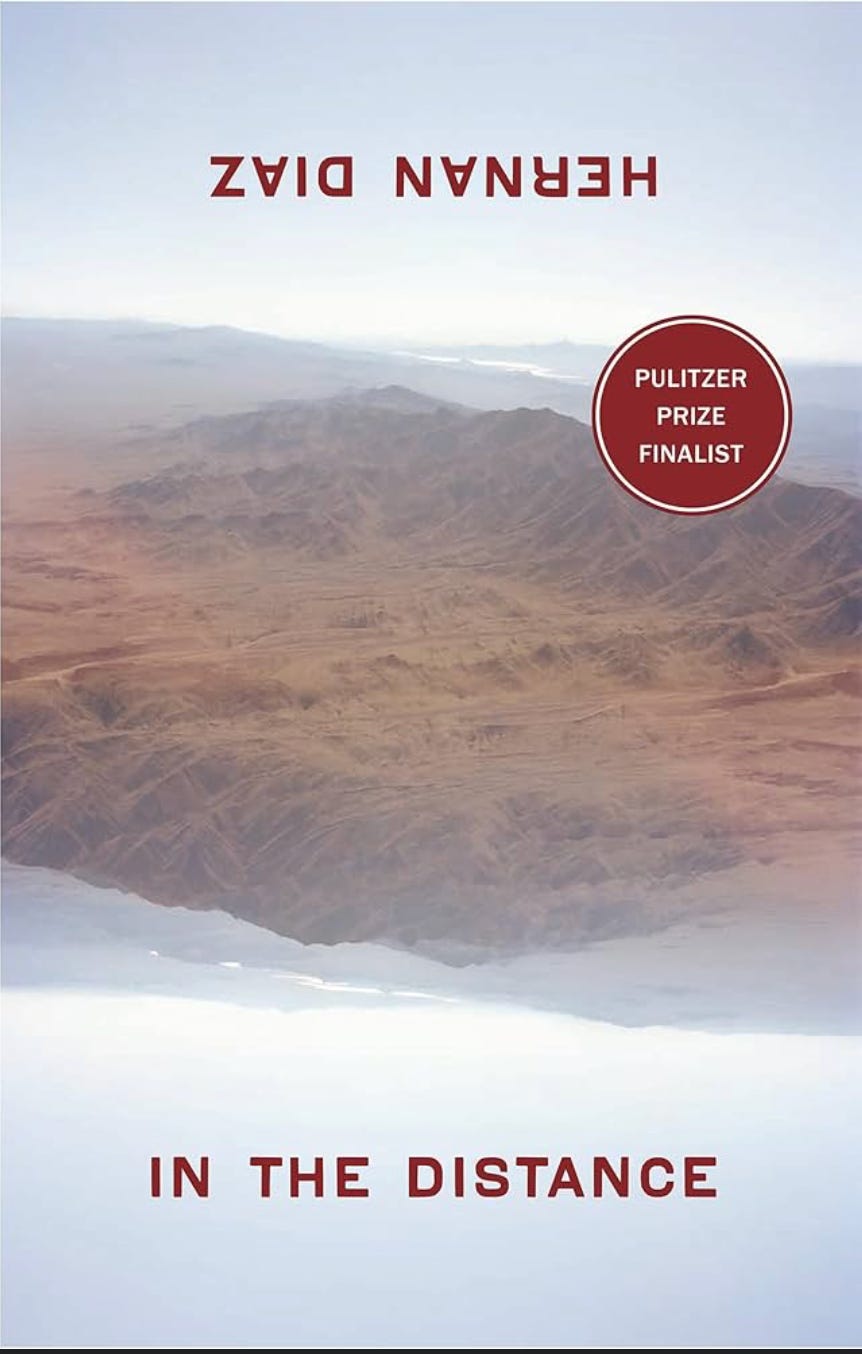Hi, I’m Matt, and welcome to Steady Beats: a newsletter examining big ideas from books you’ll love.
Fiction books are a fun method of self improvement. Really.
Reading fiction offers a secret power that no other genre provides:
A good fiction book has a self-help book hiding inside it.
The author sets a tripwire, camouflaged deep in the story, and when triggered, the idea embeds itself in you. Your point-of-view changes, and so do you.
Fiction books are better for personal growth than self-help books.
The trick—and the treat—is that the reader doesn’t know how they will transform in advance. The coming change is a mystery, rather than a grand promise plastered across the book’s cover.
For example …
In The Distance
Sometimes, a fiction book positions a less-unique idea in a new way that hits you just right:
The naturalist claimed that all life was the same and, ultimately, one. We come from other bodies and are destined to become other bodies.
This idea of earth as a finite amount of matter, in constant growth, decay, recycling, over and over, matter neither created nor destroyed.
It’s not a novel concept (pun intended).
But the way Diaz writes about the idea made it feel more profound, and for some reason, comforting.
Our bodies are part of this miraculous, fixed ecosystem that dissolves and reassembles matter in millions of different places and forms. We are just stewards, for a short time, of this matter assembled into “us."
We’re tumbling through this organic blender together. Nothing is static. Everything is shared.
We should have gratitude for all that came before to create the body we have — and to treat our bodies with the reverence and care they deserve.
By which I mean, of course, go to the gym!
(Read more about In The Distance here.)
The Overstory
Before reading The Overstory, I didn’t know I needed my perception of trees to be overhauled. Richard Powers showed me I did, with his incredible book The Overstory.
Since reading The Overstory several years ago, I’ve never thought about trees the same way again. For example, trees are a universe onto themselves:
It’s a stunning secret that no one in his family will ever know: there are more lives up here, in his one single maple, than there are people in all of Belleville.
Trees aren’t singular entities, but interconnected and part of a larger collective organism that communicates amongst itself:
Her trees are far more social than even Patricia suspected. There are no individuals. There aren’t even separate species. Everything in the forest is the forest. Competition is not separable from endless flavors of cooperation. Trees fight no more than do the leaves on a single tree.
[…]
It’s obvious to her: motionless things that grow in mass mixed communities must have evolved ways to synchronize with one another. Nature knows few loner trees.
Powers understands the power of fiction to transform perception:
"The best arguments in the world won’t change a person’s mind. The only thing that can do that is a good story."
Read more about The Overstory here.
Fiction changes history
Fiction books can change points-of-view of individuals, and eventually societies. Uncle Tom’s Cabin, which began as a newspaper serial, helped rid the United States of slavery. The Demons of Unrest discussed the power of Uncle Tom’s Cabin:
“At the time of publication the book’s portrayal of the sheer brutality of slavery proved revelatory to many readers and added fuel to the already surging antislavery movement.”
[…]
In book form, it sold three hundred thousand copies in just the first three months after its publication. In the North, it confirmed readers’ worst imaginings about the true nature of slavery;”
Stories are powerful.
Of course, fiction books can change us for the worse, also, by installing ideas that aren’t helpful, or even harmful. We have to be deliberate about what we consume.
I love it when a fiction book changes me—when a novel fixes a problem I didn’t know I had.
What fiction book changed you?
Share your favorite below, because people are the best book recommendation engine.






Wow, I never thought of fiction this way before but it certainly is a deeper way of learning to live through stories and analogies
One of my favorite authors is Mark Helprin. His characters always seem to have an inspiring combination of discipline, Stoic virtue and aesthetic sensibility. His most recent book is The Oceans and the Stars. I also loved the entire Patrick O'Brian series.